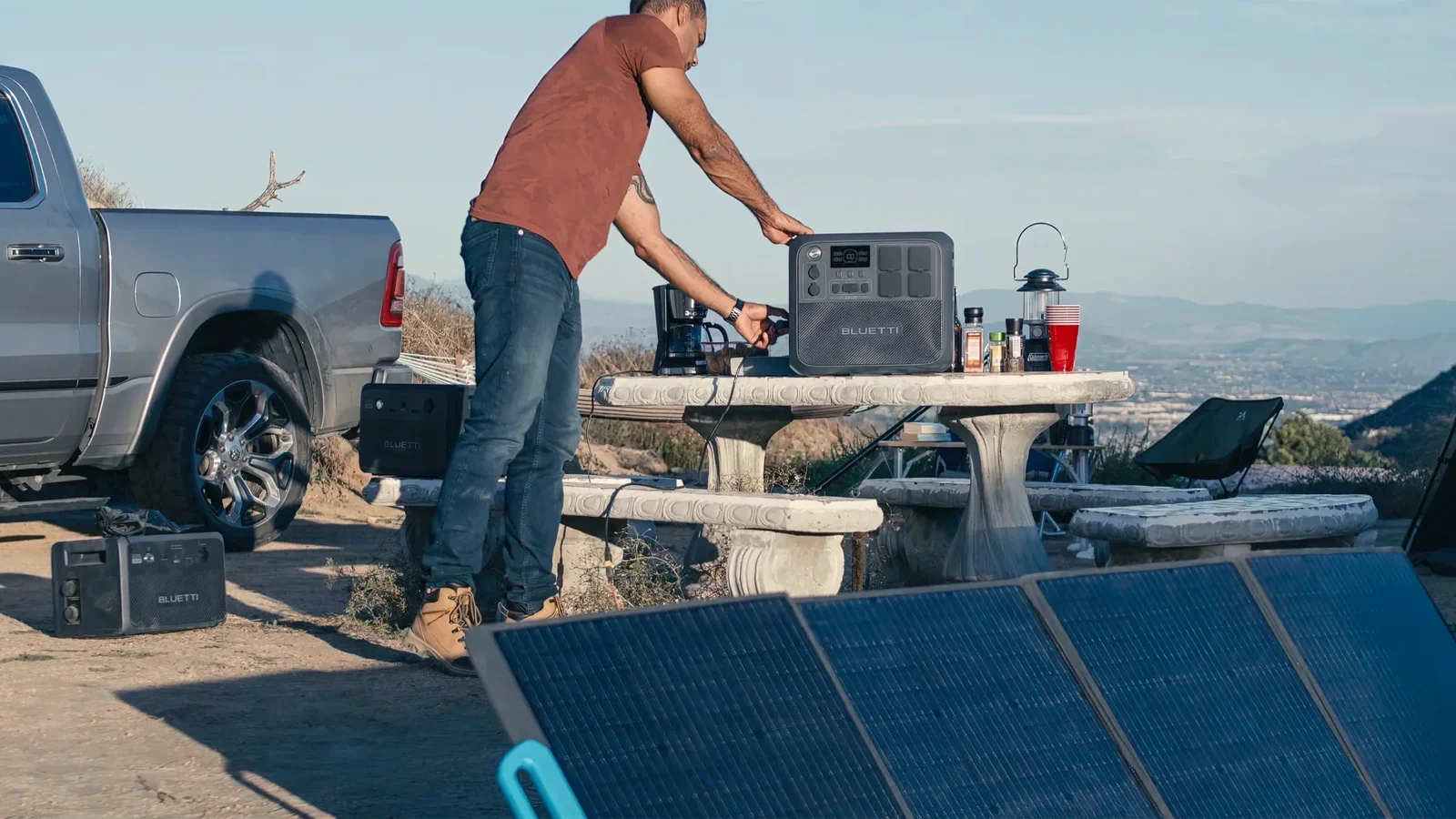Why Portable Power Matters
In recent years, the demand for portable power stations has grown dramatically. Rising interest in outdoor camping, the boom of van life, and the increasing need for home backup solutions during power outages have created a fast-growing global market. At the same time, the shift toward renewable and green energy has accelerated innovation in this space.
Today, five brands stand out as key players shaping the industry: Jackery, EcoFlow, Bluetti, DJI, and FOSSiBOT. Each of them has a unique story, strategy, and product positioning. Understanding these differences helps consumers make informed decisions—and highlights why FOSSiBOT has become the reliable, value-driven choice many users were waiting for.
Jackery – The Pioneer and Outdoor Storyteller

Jackery, founded in 2012, is widely recognized as one of the pioneers of portable power stations. The company played a crucial role in popularizing the idea of bringing renewable energy to outdoor adventures.
Key strengths of Jackery:
Outdoor storytelling: Jackery successfully connected its brand with camping and exploration. It markets itself as the perfect companion for hikers, campers, and van lifers.
Compact and lightweight design: Its power stations are smaller and easier to carry, targeting light outdoor use.
CTB (Cell to Battery) technology: This innovation improved battery integration, safety, and durability.
Market approach: Heavy investment in branding, global events, and partnerships made Jackery the “household name” for many first-time buyers.
EcoFlow – The Technology Leader and Innovator

EcoFlow entered the market later but quickly rose to fame by positioning itself as a technology-driven brand. It is best known for its fast-charging capability and modern, sleek designs.
Key strengths of EcoFlow:
X-Stream fast charging: EcoFlow’s flagship feature allows 80% charge in just 1 hour, setting a new industry standard.
Modular and expandable systems: EcoFlow DELTA Pro and similar models can be scaled up with additional batteries, making them suitable for both home backup and outdoor use.
Smart ecosystem: Integration with mobile apps and smart energy management makes EcoFlow attractive to tech-savvy users.
Global expansion: Strong crowdfunding campaigns and aggressive marketing pushed EcoFlow into the spotlight worldwide.
Bluetti – The Versatile All-Rounder

Bluetti is known as the all-rounder in the portable energy industry. Its strength lies in offering a comprehensive product range, from small camping units to large-capacity systems for home energy storage.
Key strengths of Bluetti:
Focus on capacity: Among the first brands to push into large-capacity (2000Wh+) power stations.
Wide product line: Models like AC200MAX, EP500, and EB series cover different segments from campers to households.
Expandable options: Many Bluetti systems allow adding extra batteries, providing flexibility for long-term use.
Balanced positioning: Bluetti combines solid technology with reasonable pricing, making it attractive to both budget-conscious and advanced users.
DJI – The Premium Benchmark for Quality

DJI, best known for drones and imaging technology, extended its brand into portable energy. Although not as broad in product range, DJI stands out for its premium design and build quality.
Key strengths of DJI:
Best craftsmanship: DJI is regarded as having the highest build quality among all brands.
Durability and materials: Focus on top-tier components ensures long product life.
High-end positioning: Products target professionals, filmmakers, and demanding users who want reliability above all.
Ecosystem advantage: DJI leverages its existing ecosystem of drones, cameras, and accessories.
FOSSiBOT – The Reliable, Value-for-Money Choice

Unlike others, FOSSiBOT did not chase hype like “fast charging” or “modularity.” Instead, it focused on what users truly need: reliable, powerful, and affordable energy.
The gap FOSSiBOT saw:
Many users don’t want to overspend on cutting-edge features they rarely use.
At the same time, they don’t trust cheap, no-name brands due to safety concerns.
What they need is “durable quality, enough power, and a fair price.”
Key strengths of FOSSiBOT:
Shared premium DNA: Uses EVE Energy battery cells, the same trusted cells used by Jackery, EcoFlow, and DJI.
Safe technology: Relies on LiFePO4 (LFP) batteries, which offer greater safety, cycle life, and stability.
Practical product definition: Launched directly with the F2400 (2400W), a powerful and versatile model designed for both home and outdoor use.
Affordable pricing: Comparable specs to mid- and high-end models from competitors but at a significantly lower cost.
Pragmatic strategy: Instead of burning cash on massive advertising, FOSSiBOT follows the proven path of product → reviews → word of mouth → growth.
Brand mission & vision:
Mission: “To make reliable and green power solutions accessible to every family and outdoor enthusiast.”
Vision: “To be the most trusted and value-driven brand in the portable energy industry.”
Core values: Durable, Powerful, Affordable.
Comparison Summary
| Brand | Positioning | Strengths | Target Users |
|---|---|---|---|
| Jackery | Outdoor storyteller | Compact, trusted pioneer | Campers, vanlifers |
| EcoFlow | Tech leader | Fast charge, modular | Power users, home backup |
| Bluetti | All-rounder | Large capacity, versatile | Families, home backup |
| DJI | Premium benchmark | Build quality, professional focus | Filmmakers, prosumers |
| FOSSiBOT | Value-for-money | EVE cells, LiFePO4, affordability | Families, budget-conscious, outdoor+home |
For many consumers, FOSSiBOT hits the sweet spot: the same trusted battery cells and reliable quality as industry leaders, but at a price that makes sense for everyday users.
Why We Do Not Cover Other Brands
While the portable power market is crowded with dozens of emerging brands, many of them are excluded from this comparison for one key reason: battery cell quality. Jackery, EcoFlow, Bluetti, DJI, and FOSSiBOT all use high-quality cells from EVE Energy, a trusted supplier with proven safety and reliability. In contrast, many smaller or lesser-known brands rely on cheaper, unverified cells that may compromise both safety and lifespan. Since battery cells are the very “heart” of a power station, choosing inferior cells is a risk we cannot recommend. That’s why we focus only on the brands that have demonstrated a commitment to safety, performance, and long-term reliability.








